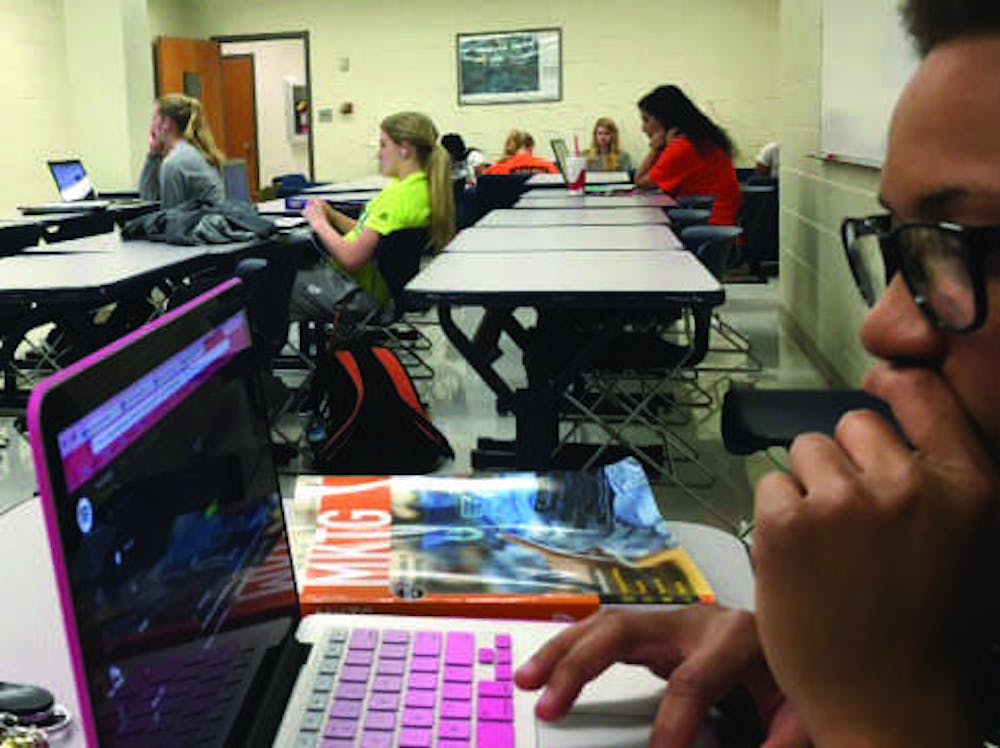For many college athletes, getting injured can damage their career and personal identity. Not only does an injury greatly affect their ability to play a sport they love, but it also can be vastly damaging to their mental well-being.
The methods of coping are solely dependent on the individual. For some athletes, mental recovery often takes longer and is more strenuous than physical recovery. Yet this, too, is somewhat dependent on the type of injury and its severity.
Kyle Trammell, a sophomore outside linebacker on the football team, tore his MCL during the fourth game of the season. Although he continuously worked to play again soon, the injury was more serious than he initially thought. He didn’t play another down that season.
“Being injured obviously affects you physically, but on top of that is the mental weight of continuously trying to get out on the field. It really gets to you. The mental can really be worse than the physical,” Trammell said. “I was going to class, paying attention, but I didn’t feel truly present.”
Many athletes rely on the support of teammates, family and friends to aid them in coping with the reality of an injury.
Demi-Shay Watchorn, a member of Mercer’s sand volleyball team who injured her ACL, was able to lean on her family, friends and boyfriend to get her through the inability to play volleyball.
“When I was injured I found distractions . . . distracting myself with other things was the only way I got through it, she said. “You identify yourself as a player for so long, and then when it's taken away from you, it creates a crisis.”
Brooke Hartstock, a freshman on the soccer team, tore her ACL on the second day of preseason. The severity of the injury caused great distress as it was the second time she would need surgery.
Harstock said the the mental effects were rough on her.
“I was crying to my dad saying I wasn’t going to play soccer anymore because I’d had two surgeries in two months,” she said.
Yet she was able to find comfort in her parents and was recently cleared to begin playing again. Hartstock cites her injury as a means of instilling a deeper love and appreciation for the game.
“I really look forward to playing . . . I got a glimpse of what life would be like without being able to play, and it sucks,” she said.
Many athletes find solace in their sport and being unable to play inhibits both their love of the game and their identity as athletes. However, with the support of loved ones and encouraging coaching staff and teammates, the road to recovery can be made a little easier to deal with.
Mental recovery of athletes

Support from loved ones and distractions from reality make life a bit easier on an athlete's road to recovery.




